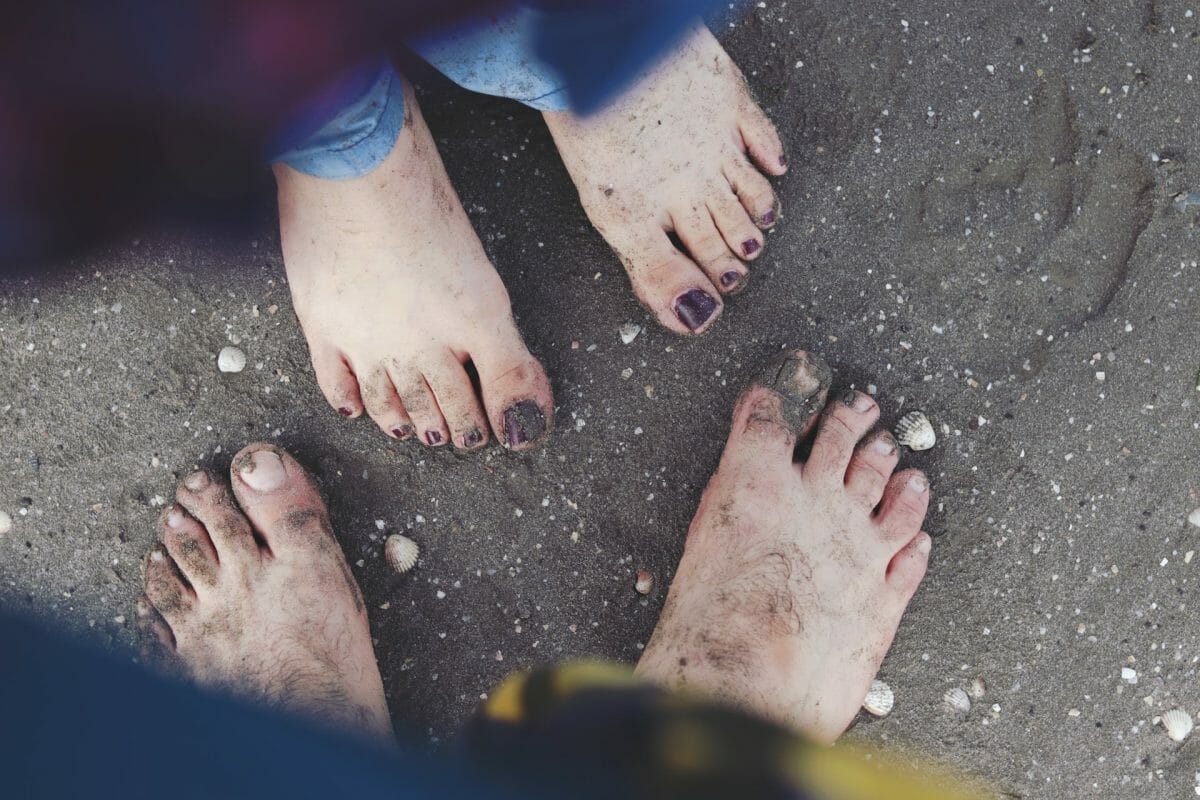It might sound a bit humorous, but people who have excessively sweaty feet would probably be more likely to consider it a problem, because it can be both embarrassing and uncomfortable. It’s also possible that you could damage shoes or sandals and wearing high heels could be problematic as well. Sweaty feet, or the medical condition hyperhidrosis feet, and generally speaking, people who experience this condition will also have sweaty hands.
One of the bigger problems with having sweaty feet is that it can cause foot odor, which is obviously undesirable in social situations or at the workplace, and it can also lead to a fungal infection. There are several approaches you can take to dealing with a problem like this, and in this article, we’ll discuss some of them so that you can avoid problems with relationships and social difficulties as well.
Why do my feet sweat?
There can be as many as 250,000 sweat glands located in your feet, and these glands are capable of generating up to a pint of sweat for each foot every single day. Human feet commonly provide a place to live for all kinds of bacteria that thrive on the mix of sodium and water, and it’s these bacteria that generate the unpleasant odor causing your feet to smell badly. The more you sweat, the more food there is for these bacteria, so even more bacteria will be generated.
It’s a kind of self-perpetuating cycle that can be intensified by the kind of footwear you have on, the presence of issues like fungal infections, and of course, by how much you sweat. Footwear can be a big contributor to the volume of sweat produced and can tend to exacerbate any foot odor problem you naturally have.
If your footwear is constructed of synthetic materials that don’t breathe well, that can hinder sweat evaporation and it can provide the kind of humid environment that bacteria require in order to thrive. The same thing is true of socks made of synthetic fabrics – when they don’t allow for air flow and proper breathing by your feet, it can intensify the humidity buildup and worsen the condition.
The best kind of socks you can wear to reduce foot odor would be socks that are made of natural fabrics like cotton. You can also do yourself a favor by adopting good hygiene habits to reduce the foot odor problem. Make sure to dry your feet very well after bathing or showering, and you should also change your socks regularly.
Surgical solution
There is a proven surgical solution which can successfully handle severe cases of hyperhidrosis feet, and a somewhat less effective procedure which might also be attempted. Before any kind of surgery can be attempted, you’ll have to consult with your doctor to see if you are a good candidate for either of these procedures. That’s because there are some conditions which can tend to rule out potential surgery.
If you have any kind of anatomical abnormality with your feet, it will be difficult or impossible for the surgeon to carry out the procedure. There’s also the possibility that you might have pronounced scarring from infections that weren’t treated properly, or you might have previous lumbar sympathectomies. It’s also possible that you could have had other surgeries performed on your feet, and any one of these situations might disqualify you as a candidate.
The more common but less effective type of surgery is known as endoscopic thoracic sympathectomy, and it has a success rate in the neighborhood of 20%. The most effective type of foot surgery for managing hyperhidrosis feet is called lumbar sympathectomy, and this procedure routinely has a success rate of around 98%.
The procedure takes between 75 and 90 minutes, and it’s performed on an outpatient basis, so that minimal downtime is associated. This latter procedure is relatively new and has yet to be adopted by many foot surgeons, which accounts for its relative infrequency. If you can find a surgeon who is capable of performing this procedure, it will probably give you the best chance for overcoming the sweaty foot condition permanently.
Outlook for people with hyperhidrosis feet
You will definitely be aware of it if you’re a person suffering from hyperhidrosis feet or plantar hyperhidrosis, as it is known medically. Even though surgery is by far the most effective solution to the problem, you’ll more than likely have to try some more conservative procedures to begin with. This is primarily because most insurance companies insist that these more conservative measures be adopted first, since they’re far less expensive.
Some of the possibilities in this area include using oral medications, topical lotions, acupuncture, electronic devices, beta blockers, and anti-anxiety medications. While such measures generally produce only minimal relief in a person afflicted by this condition, it is normal to attempt these measures before considering a surgical solution. If you get no relief whatsoever from these more conservative measures, that’s when you should seek out a surgeon who is knowledgeable and competent in one of the surgical procedures mentioned above.



